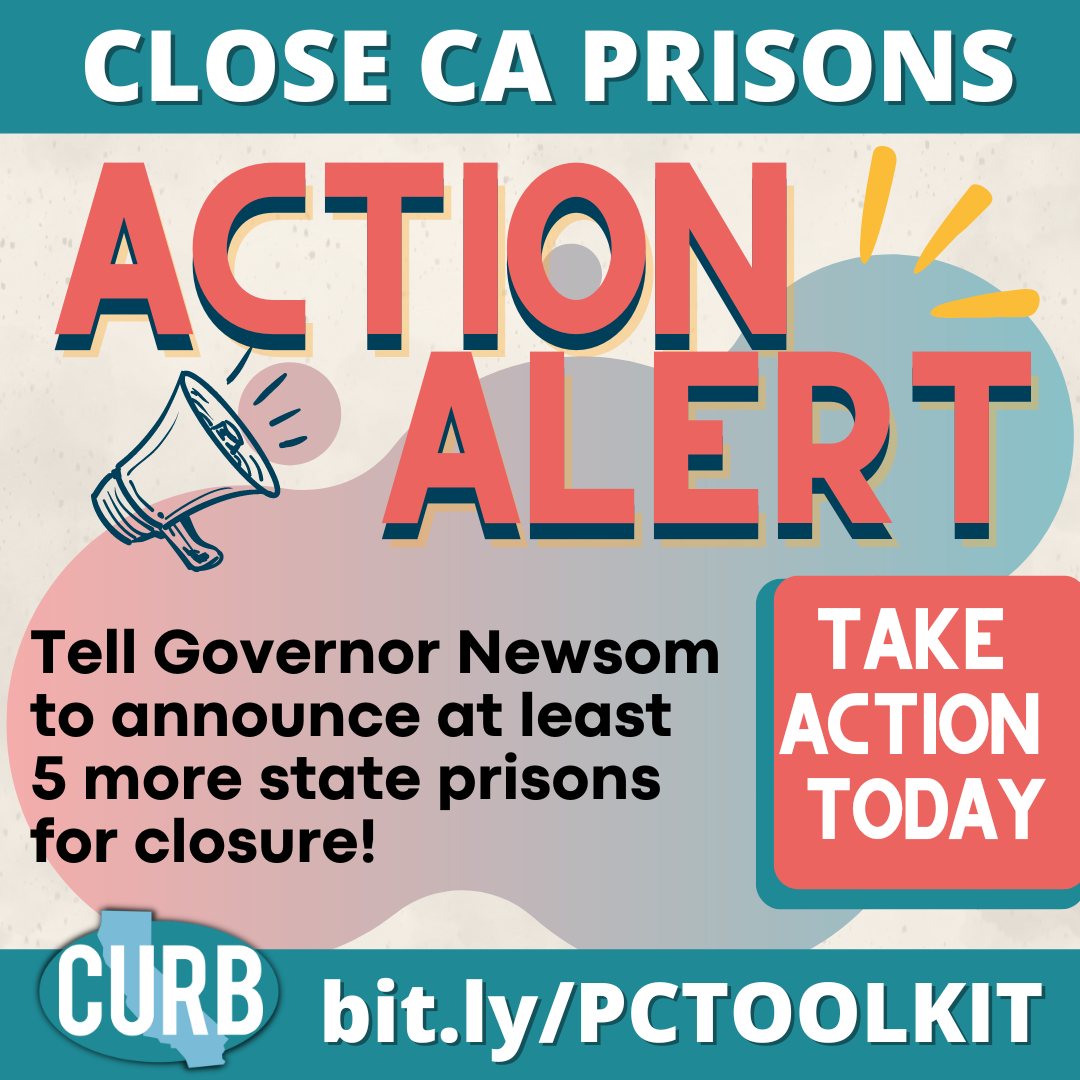ACTION ALERT - Take Digital Action to #CloseCAPrisons TODAY!
Prison closures work toward an end to mass incarceration and its social and fiscal costs

Felony Murder Elimination Project asks its supporters and advocates to step up and take action today! Call and email California Governor Gavin Newsom and urge him to commit to naming at least five more state prisons for closure between now and the January proposed 2024-25 California state budget.
California faces a staggering $68 billion budget deficit. The closure of additional prisons not only makes fiscal sense but also aligns with a transformative approach to criminal justice. Announcing five forthcoming closures will demonstrate Governor Newsom's dedication to a responsible budget and substantive shift away from an over-reliance on incarceration.
We know it is possible for the state to name prisons for closure late in the year. Last year in December, Chuckawalla Valley State Prison (CVSP) was named for closure. Despite data and community calls backing the need for at least five more facility closures, the state has not named any prisons for closure this year & instead allocated millions to be poured into California’s oldest state prison, San Quentin.
The U.S. prison population has grown by 500 percent in 30 years. We have called for and will continue to call for an end to mass incarceration and its related social and fiscal costs. Changes in drug sentencing laws, state budget crises and other factors are contributing to re-introduction of rehabilitation and options instead of prison for those in the criminal justice system. University of Chicago School of Social Work professor Robert Fairbanks states “Ironically, part of the fiscal fallout of the state budget crises and high recidivism rates is that there is some consensus that systematic mass incarceration is simply unsustainable."
We call for the following:
- Announce at least 7 more prisons to be closed by 2025.
- Adopt a detailed roadmap to close more prisons as part of the 2024-25 budget process, one that prioritizes community input and ends CDCr’s spending spree, including includes an end to prison expansion efforts such as the San Quentin rebrand and the “California Model."
- Reduce prison populations through releases. If transfers do happen, they must happen safely & bring people closer to their loved ones.
- Ensure closed prisons are torn down or repurposed for non-carceral use.
- Invest in community-based care for formerly incarcerated people and marginalized communities, as well as labor and economic solutions in towns where prisons close.
Use this link to access call/email scripts and social media sample posts --->>> bit.ly/PCTOOLKIT
Let's close out the year strong! Prison closure is a key step towards building a healthier, safer, and greener California for us all!










